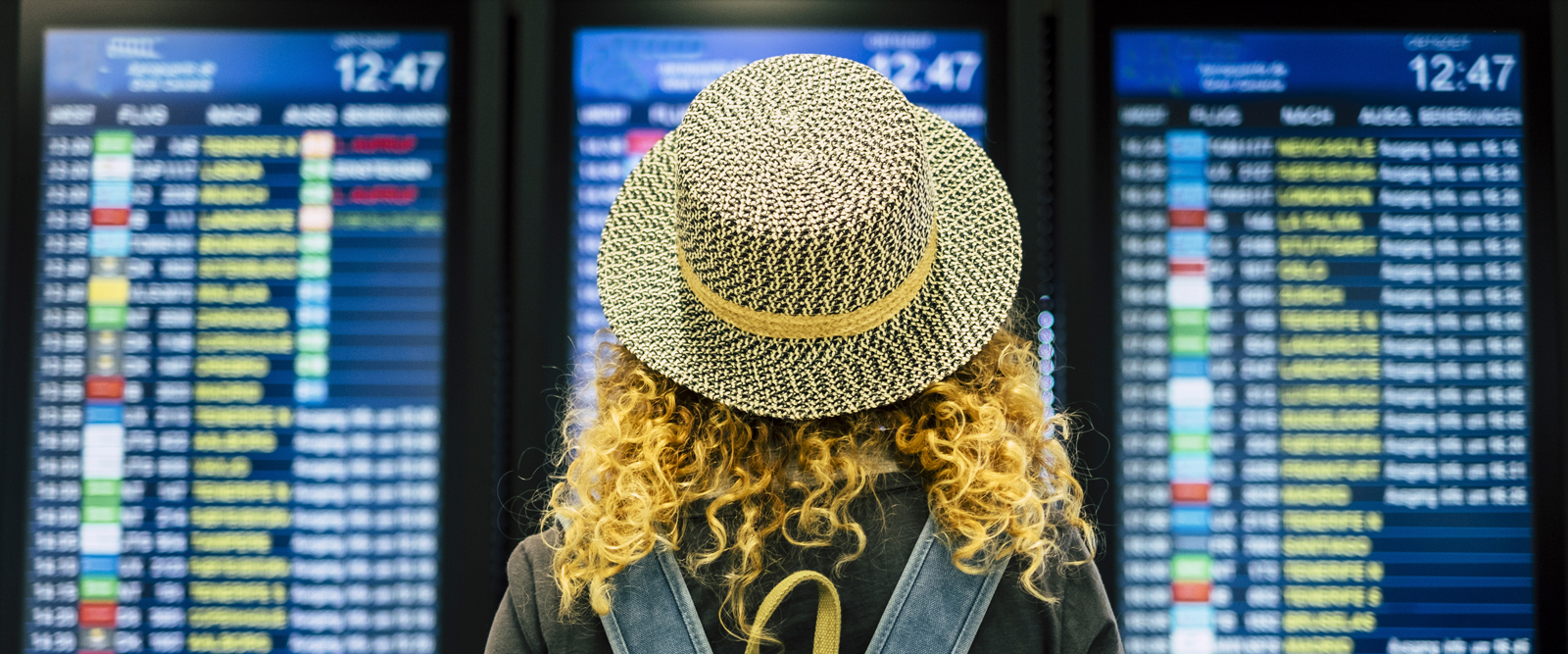Summer Travel Tips: How to Stay Healthy While Traveling
An infectious diseases expert shares tips and the COVID-19 precautions that travelers should continue to take.


With COVID-19 restrictions loosening and places and countries re-opening, many Americans are ready to embrace traveling again. According to the Transportation Security Administration (TSA), the number of travelers passing through checkpoints are approaching pre-pandemic numbers.
“The pandemic pressed a pause button on vacation planning and travel in general for most of us,” says Dr. Ole Vielemeyer, an associate attending physician at NewYork-Presbyterian/Weill Cornell Medical Center and medical director of Infectious Disease Associates and Travel Medicine at Weill Cornell Medicine. “As a result, many of us are yearning for a getaway and change of scenery.”
As we adjust to a new normal, travelers should continue to consider COVID-19 precautions while planning their trips, advises Dr. Vielemeyer. He shared with Health Matters his tips on how to make safe choices while travel planning this summer.
Get Boosted
COVID-19 infection rates have declined around the world following a wave fueled by Omicron this past winter, but as restrictions continue to loosen, it’s as important as ever to make sure you’re vaccinated and boosted before you travel, says Dr. Vielemeyer, who is also an associate professor of clinical medicine at Weill Cornell Medicine.
Studies have shown that protection from vaccines wanes over time, so it’s important to get boosted, even if you’ve had a prior infection. And if you’re eligible for a second booster, it’s a good idea to get that too. “Vaccination reduces the transmission of the virus, making it much safer for everybody to start traveling again,” he says. “By far, the most protection will come from being fully vaccinated and boosted before you embark on your trip. While infections with the Omicron variants are often relatively mild, some can still lead to symptoms of long COVID, thus it is better not to get infected.”
Keep It Simple and Slow It Down
While it might be tempting to check off all the places on your bucket list after being stuck at home for so long, it’s smart to focus on one destination. “Instead of, say, visiting six countries in 10 days, pick one place and explore it in depth,” says Dr. Vielemeyer. “That could end up being an even more rewarding experience, and it certainly will reduce [the] risk of catching a virus, including the virus that causes COVID-19.”
Dr. Vielemeyer also suggests remembering the leisure part of leisure time. Taking some extra days so you’re able to adjust to your destination, enjoy the sights, and have time to transition when you get home will help ensure that you don’t get run down from the travel. “The more rested you are, the stronger your immune system will be,” says Dr. Vielemeyer.
Enjoy the Outdoors
Studies have shown that the virus that causes COVID-19 is much less transmissible outside. Dr. Vielemeyer encourages visiting a place that allows for lots of outdoor time. To avoid crowds, “pick a destination that is off the beaten path and not on the list of Instagramable sites,” he says. “You will run into fewer people and may discover something truly magical and new.”
For families who want to travel with young children who are not yet fully vaccinated, an outdoor trip, such as camping, is a great option. “Kids love the outdoors. Be sure to bring extra hand sanitizer wipes, tissues, masks,” says Dr. Vielemeyer.
Pack Your Masks
While mask mandates are no longer enforced on domestic flights, some airports still require it. And since masks have been shown to reduce transmission of COVID-19, make sure to bring some masks on your trip, advises Dr. Vielemeyer.
While N-95 masks offer the most protection, “The most appropriate mask is a surgical mask that fits well. It prevents droplet transmission and is more breathable than an N-95 mask,” he says.
As for the plane itself, Dr. Vielemeyer says that “The filtering system and air exchanges make airline travel one of the safer options.”
If you are flying, remember to:
- Stay hydrated before and during the flight
- Limit alcoholic beverages
- Move about the cabin when permitted
- Wear appropriate clothing so you don’t get too hot or too cold
- Pack masks, alcohol-based hand sanitizer, alcohol-based wipes for touch surfaces, and tissues
“By far, the most protection will come from being fully vaccinated and boosted before you embark on your trip.”— Dr. Ole Vielemeyer
Research Lodging
Most places have implemented COVID-safety protocols, so familiarize yourself with the measures they take. “Since COVID-19 outbreaks typically occur at larger places, consider a small- or medium-sized hotel or resort that has proper room cleaning guidelines in place, air filtration systems that have central air conditioning, staff that is either vaccinated or required to wear masks, and enforced capacity limits for places like restaurants and elevators,” advises Dr. Vielemeyer. “If you are staying in a larger resort that could potentially be crowded, use public areas during off-peak hours, wear a mask when in doubt, and wash your hands frequently.”
Be Informed, Prepared, and Flexible
Make sure you keep up with news about your destination and its COVID-19 cases. Dr. Vielemeyer also recommends taking these steps:
- Have a contingency plan in case you need to cancel your trip due to surging cases.
- Make sure all information about your personal health is readily available.
- Bring all your medication with you, including extra, in case your trip must be extended.
- Consider travel health insurance if you believe you are at increased risk of falling ill, and have a plan on how to proceed if you get sick.
“Mass vaccination around the world has reduced the disease burden and thus made it much safer for people to start traveling again,” says Dr. Vielemeyer. “It’s an exciting time as we finally are ready to pack our bags and explore again.”

